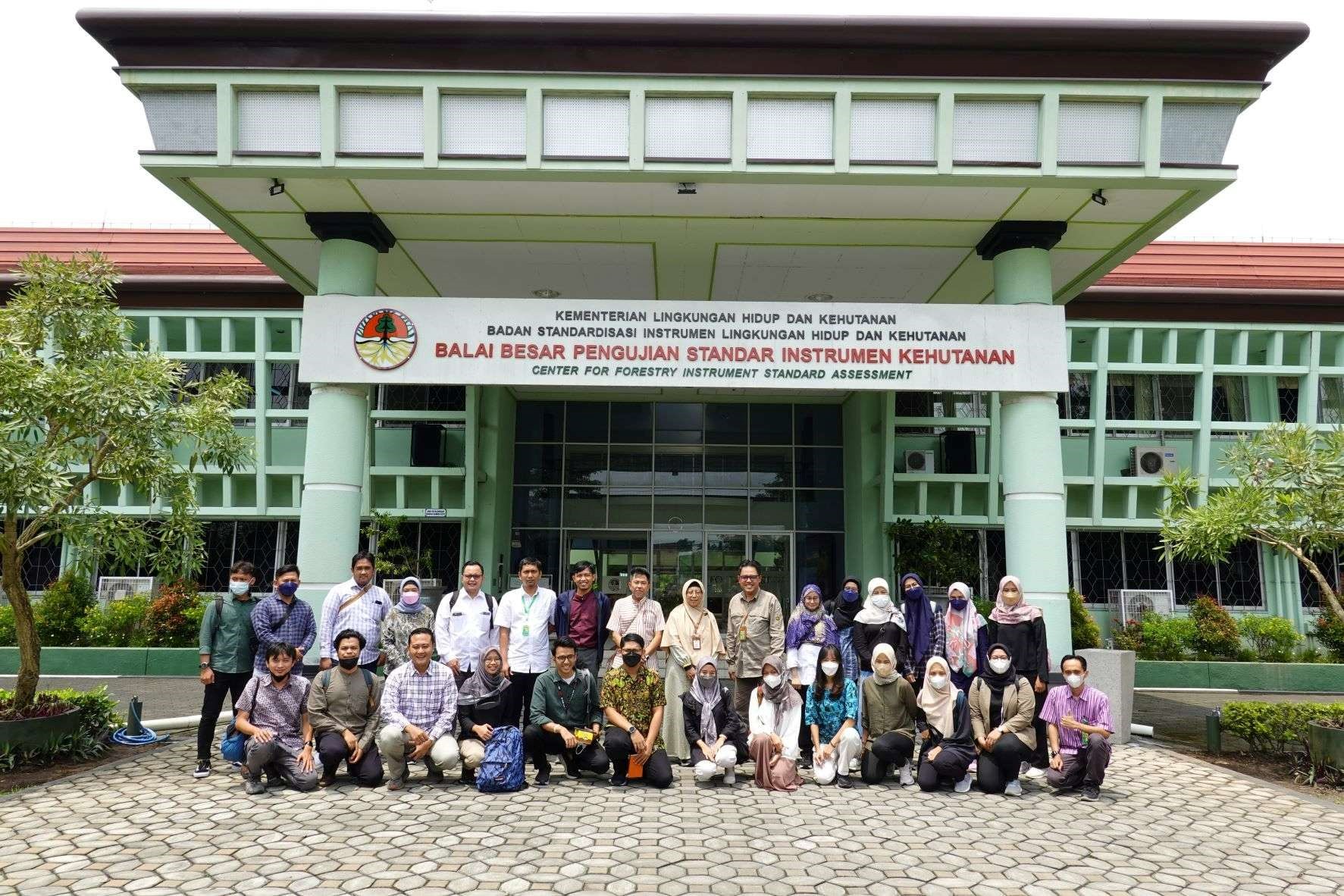
As part of a study on the development of national forest bioeconomy policies in Indonesia, FORCLIME, supported by Bappenas, recently visited the laboratory of the Center for Testing Standards for Forestry Instruments (BBPSIK) Yogyakarta and the laboratory of the Faculty of Forestry, Gadjah Mada University (Fahutan UGM). This visit was undertaken in an effort to seek information on the latest developments in bio-based products and the views of researchers/academics on the potential for bioeconomy development in Indonesia. Led by Mrs. Dr. Nur Hygiawati Rahayu, ST, MSc as Director of Forestry and Water Resources Conservation at the Ministry of National Development Planning/Bappenas, the visit was held on 17 November 2022.
At BBPSIK Yogyakarta, Bappenas and FORCLIME teams were received by the Head of BBPSIK Yogyakarta, Mr. Dwi Prabowo Yuga Suseno, S.Sc., M.Sc., PhD. In his remarks, Mr. Dwi Prabowo offered a glimpse into the role of BBPSIK Yogyakarta in the wake of the issuance of the Job Creation Law, as well as the various facilities that are owned and operated by BBPSIK Yogyakarta, which include laboratories and Special Purpose Forest Areas. Mr. Prabowo’s remarks also addressed bioenergy development activities involving nyamplung plants (Calophyllum inophyllum). The development of nyamplung plants at BBPSIK Yogyakarta first got underway in 2008 and the initial focus of this development was upstream improvement through the selection of superior stems and then multiplying them to obtain plants characterized by high levels of productivity. Currently, this development is being successfully continued and is working on the extraction and manufacture of biodiesel. In this regard, biodiesel derivatives can be used as sources of bioenergy and biopharmaceuticals. Biodiesel processing waste can also be used to make briquettes, liquid smoke, feed and cosmetics.
After the discussion, the team was taken to visit the Oil Producing NTFPs Testing Laboratory to observe the process of extracting vegetable oil through the application of various methods, as well as differences in the quality of the oil based on species and processing process. The team also visited the Tissue Culture Test Laboratory to observe the tissue culture techniques that are being used on several plants such as nyamplung, sandalwood, eucalyptus and sengon.
The team then moved to Fahutan UGM, where it was welcomed by the Dean of Fahutan UGM, Mr. Sigit Sunarta, S.Hut., MP, M.Sc., Ph.D, and a selection of lecturers. Discussions with academics at UGM focused on views and opinions relating to opportunities and challenges for the future development of the forestry bioeconomy. One of the important points discussed was the need to analyze market opportunities and synchronize upstream and downstream forest products to ensure that the carrying capacity of the allocated land has the right benefits and avoids land degradation problems.
For more information, please contact:
Nurdita Rahmadani, Junior Advisor for Monitoring, Evaluation and Reporting
R. Rizka Dewi Zuleika, Junior Advisor for Sustainable Forest Management
Pipin Permadi, Senior Advisor and Liaison Officer






